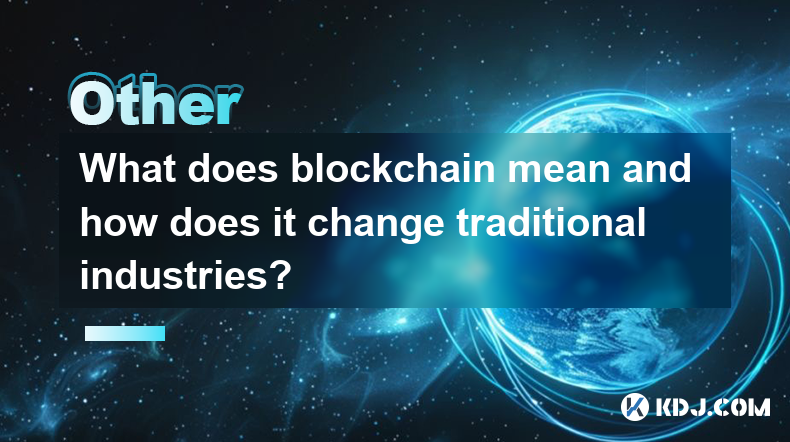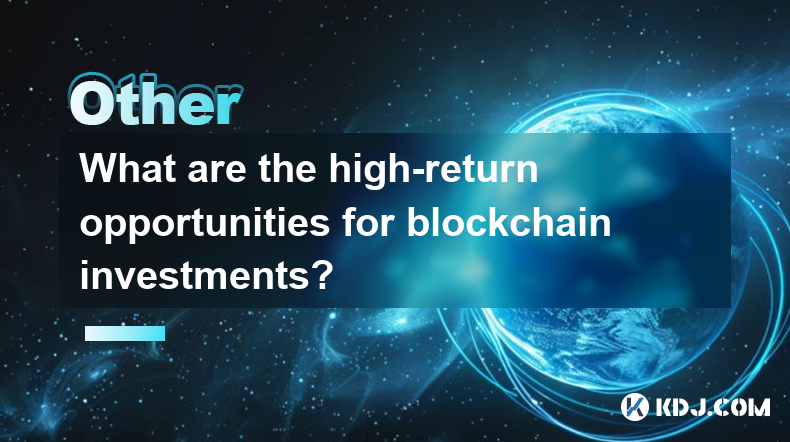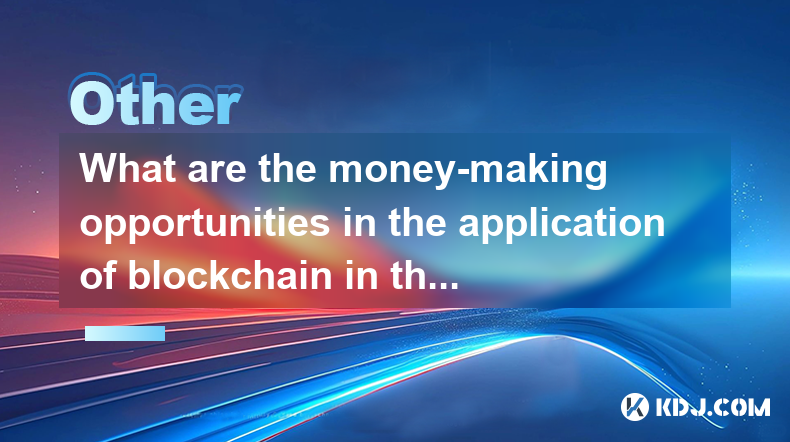-
 Bitcoin
Bitcoin $79,012.1761
-4.78% -
 Ethereum
Ethereum $1,570.4026
-12.09% -
 Tether USDt
Tether USDt $0.9994
-0.02% -
 XRP
XRP $1.9666
-7.46% -
 BNB
BNB $555.4328
-6.02% -
 USDC
USDC $0.9999
-0.01% -
 Solana
Solana $107.5201
-9.67% -
 Dogecoin
Dogecoin $0.1506
-10.27% -
 TRON
TRON $0.2315
-2.62% -
 Cardano
Cardano $0.5814
-10.27% -
 UNUS SED LEO
UNUS SED LEO $8.8602
-2.17% -
 Chainlink
Chainlink $11.3795
-10.04% -
 Toncoin
Toncoin $3.0063
-7.92% -
 Stellar
Stellar $0.2370
-5.38% -
 Avalanche
Avalanche $16.1395
-9.48% -
 Shiba Inu
Shiba Inu $0.0...01134
-7.55% -
 Sui
Sui $1.9135
-13.06% -
 Hedera
Hedera $0.1425
-11.59% -
 Polkadot
Polkadot $3.7145
-5.76% -
 MANTRA
MANTRA $5.9824
-4.31% -
 Bitcoin Cash
Bitcoin Cash $272.1059
-9.40% -
 Litecoin
Litecoin $71.2279
-13.11% -
 Dai
Dai $1.0000
-0.02% -
 Ethena USDe
Ethena USDe $0.9987
-0.05% -
 Bitget Token
Bitget Token $4.1866
-5.67% -
 Pi
Pi $0.5915
4.23% -
 Monero
Monero $200.3568
-5.71% -
 Hyperliquid
Hyperliquid $10.5427
-10.74% -
 Uniswap
Uniswap $5.1188
-11.73% -
 OKB
OKB $50.3711
-2.37%
What does blockchain mean and how does it change traditional industries?
Blockchain revolutionizes data storage and transactions with its decentralized, secure ledger, impacting finance, supply chains, healthcare, real estate, and energy sectors.
Apr 04, 2025 at 10:43 pm

Blockchain is a revolutionary technology that has transformed the way data is stored and transactions are processed. At its core, blockchain is a decentralized and distributed digital ledger that records transactions across numerous computers. This ensures that the data is not controlled by any single entity, making it highly secure and resistant to tampering. The technology gained prominence with the advent of Bitcoin, the first cryptocurrency, but its applications extend far beyond digital currencies. Blockchain's ability to provide transparency, security, and efficiency has led to its adoption in various traditional industries, reshaping how they operate.
Understanding Blockchain Technology
Blockchain technology operates on a network of computers, each of which holds a copy of the entire ledger. When a new transaction is made, it is broadcast to every participant in the network. These transactions are grouped into blocks, which are then verified by network participants, often through a process known as mining. Once a block is verified, it is added to the chain of previous blocks, creating a permanent and unchangeable record. This decentralized nature eliminates the need for a central authority, reducing the risk of fraud and increasing trust among participants.
Key Features of Blockchain
Several key features make blockchain a game-changer in the world of technology and business. Transparency is one of the most significant aspects, as every participant has access to the entire ledger, making it easy to verify transactions. Immutability ensures that once data is recorded on the blockchain, it cannot be altered or deleted, providing a high level of security. Decentralization removes the need for intermediaries, reducing costs and increasing efficiency. Additionally, Smart Contracts automate transactions and agreements, further streamlining processes.
Impact on Traditional Industries
Blockchain technology has the potential to disrupt and transform various traditional industries. In the financial sector, blockchain enables faster and cheaper cross-border payments, reduces the need for intermediaries, and enhances security. For instance, banks can use blockchain to settle transactions in real-time, eliminating the delays and costs associated with traditional methods. In the supply chain industry, blockchain provides a transparent and tamper-proof record of the journey of goods from manufacturer to consumer, improving traceability and reducing fraud. Healthcare can benefit from blockchain by securely storing patient records and ensuring their privacy and integrity.
Blockchain in Finance
The financial industry has been one of the earliest adopters of blockchain technology. Traditional banking processes, such as clearing and settlement, can be significantly improved with blockchain. By using blockchain, banks can process transactions in real-time, reducing the time and cost associated with these operations. Moreover, blockchain enables the creation of decentralized finance (DeFi) platforms, which offer financial services without the need for traditional financial institutions. These platforms use smart contracts to automate lending, borrowing, and trading, making financial services more accessible and efficient.
Blockchain in Supply Chain Management
In the supply chain industry, blockchain technology offers numerous benefits. It provides a transparent and immutable record of the entire supply chain, from the origin of raw materials to the delivery of the final product. This transparency helps in verifying the authenticity of products and ensuring that they meet regulatory standards. Additionally, blockchain can reduce the risk of fraud and errors by providing a single source of truth for all parties involved. Companies like Maersk and IBM have already implemented blockchain solutions to streamline their supply chain operations, demonstrating the technology's potential to revolutionize the industry.
Blockchain in Healthcare
Blockchain technology has significant implications for the healthcare industry. It can be used to securely store and share patient records, ensuring that sensitive data is protected from unauthorized access. By using blockchain, healthcare providers can maintain a tamper-proof record of patient information, improving data integrity and privacy. Additionally, blockchain can facilitate the sharing of medical research data, enabling faster and more collaborative development of new treatments and medications. Companies like MedRec are already using blockchain to create secure and decentralized systems for managing patient data, showcasing the technology's potential in healthcare.
Blockchain in Real Estate
The real estate industry can also benefit from blockchain technology. Blockchain can streamline the process of buying and selling property by providing a secure and transparent record of ownership and transactions. Smart contracts can automate the transfer of property titles, reducing the need for intermediaries and lowering transaction costs. Additionally, blockchain can facilitate the tokenization of real estate assets, allowing for fractional ownership and increasing liquidity in the market. Platforms like Propy are already using blockchain to simplify real estate transactions, demonstrating the technology's potential to transform the industry.
Blockchain in Energy
In the energy sector, blockchain technology can enable the creation of decentralized energy grids, allowing for peer-to-peer energy trading. By using blockchain, individuals can buy and sell excess energy generated from renewable sources, such as solar panels, directly with one another. This can lead to more efficient energy distribution and increased adoption of renewable energy sources. Companies like Power Ledger are already implementing blockchain solutions to facilitate peer-to-peer energy trading, demonstrating the technology's potential to revolutionize the energy industry.
Challenges and Future Prospects
Despite its numerous benefits, blockchain technology faces several challenges. Scalability remains a significant issue, as current blockchain networks can struggle to handle a high volume of transactions. Additionally, regulatory uncertainty and the need for standardization can hinder the widespread adoption of blockchain. However, ongoing research and development efforts are addressing these challenges, and the future prospects for blockchain technology remain promising. As more industries recognize the potential of blockchain, we can expect to see increased adoption and further innovation in the field.
Common Questions Related to Blockchain and Its Impact on Traditional Industries
What is blockchain technology?
Blockchain technology is a decentralized and distributed digital ledger that records transactions across numerous computers. It ensures transparency, security, and efficiency by allowing participants to verify and validate transactions without the need for a central authority.
How does blockchain impact the financial industry?
Blockchain impacts the financial industry by enabling faster and cheaper cross-border payments, reducing the need for intermediaries, and enhancing security. It facilitates real-time transaction settlement and supports the development of decentralized finance (DeFi) platforms, making financial services more accessible and efficient.
What are the benefits of blockchain in supply chain management?
Blockchain provides a transparent and immutable record of the entire supply chain, improving traceability and reducing fraud. It helps verify the authenticity of products and ensures they meet regulatory standards, streamlining operations and increasing trust among all parties involved.
How can blockchain improve healthcare?
Blockchain can improve healthcare by securely storing and sharing patient records, ensuring data integrity and privacy. It facilitates the sharing of medical research data, enabling faster and more collaborative development of new treatments and medications.
What role does blockchain play in real estate?
Blockchain can streamline real estate transactions by providing a secure and transparent record of ownership and transactions. Smart contracts can automate property title transfers, reducing costs and intermediaries. It also enables the tokenization of real estate assets, increasing liquidity in the market.
How does blockchain impact the energy sector?
Blockchain enables the creation of decentralized energy grids, facilitating peer-to-peer energy trading. Individuals can buy and sell excess energy from renewable sources directly, leading to more efficient energy distribution and increased adoption of renewable energy.
What are the challenges facing blockchain technology?
Challenges facing blockchain technology include scalability issues, regulatory uncertainty, and the need for standardization. However, ongoing research and development efforts are addressing these challenges, and the future prospects for blockchain remain promising.
Disclaimer:info@kdj.com
The information provided is not trading advice. kdj.com does not assume any responsibility for any investments made based on the information provided in this article. Cryptocurrencies are highly volatile and it is highly recommended that you invest with caution after thorough research!
If you believe that the content used on this website infringes your copyright, please contact us immediately (info@kdj.com) and we will delete it promptly.
- Pepe (PEPE) Weekly Performance Hints At Huge Surge
- 2025-04-07 04:15:13
- XRP Price Tanks 12.8% This Week — More Pain to Come?
- 2025-04-07 04:15:13
- XRP's Funding Rate Has Dropped to Negative 0.012%, a Level Last Seen When the Asset Traded Near $0.33
- 2025-04-07 04:10:13
- A major supply event is coming for the SUI token
- 2025-04-07 04:10:13
- Memecoin DEX PumpSwap Makes a Significant Impact, Attracting 700K Wallets and Facilitating 30M Swaps
- 2025-04-07 04:05:12
- Ronin Network (RON) Has Retraced Heavily This Year
- 2025-04-07 04:05:12
Related knowledge

Is the ranking of Chinese blockchain apps real and reliable?
Apr 04,2025 at 09:01pm
The ranking of Chinese blockchain apps has become a topic of interest for many in the cryptocurrency community, as it provides insights into the popularity and adoption of blockchain technology within China. However, the reliability and authenticity of these rankings are often questioned. This article aims to delve into the factors that influence these ...

What are the future development trends of blockchain game development?
Apr 03,2025 at 05:00am
Blockchain technology has revolutionized various industries, and gaming is no exception. As we look to the future, several trends are set to shape the development of blockchain games. These trends not only promise to enhance the gaming experience but also to integrate blockchain technology more seamlessly into the gaming ecosystem. Let's explore these t...

What are the high-return opportunities for blockchain investments?
Apr 05,2025 at 02:35pm
Blockchain technology has revolutionized the financial world, offering numerous high-return investment opportunities. These opportunities span various sectors within the cryptocurrency ecosystem, including cryptocurrencies, decentralized finance (DeFi), non-fungible tokens (NFTs), and blockchain startups. Each of these areas presents unique risks and re...

What are the maintenance costs of blockchain system development?
Apr 03,2025 at 06:07pm
The maintenance costs of blockchain system development are multifaceted and depend on various factors. These costs can include technical maintenance, security updates, infrastructure expenses, and personnel costs. Understanding these elements is crucial for anyone planning to develop or maintain a blockchain system. Technical MaintenanceTechnical mainte...

What are the money-making models of blockchain games?
Apr 04,2025 at 02:00pm
Blockchain games have emerged as a revolutionary way for players to earn real money while enjoying their favorite pastime. These games leverage the power of blockchain technology to create unique money-making models that benefit both the players and the developers. In this article, we will explore the various money-making models of blockchain games and ...

What are the money-making opportunities in the application of blockchain in the field of Internet of Things?
Apr 05,2025 at 10:35pm
The integration of blockchain technology with the Internet of Things (IoT) presents numerous money-making opportunities. Blockchain, with its decentralized and secure nature, can revolutionize how IoT devices interact, manage data, and conduct transactions. This article will explore various avenues where entrepreneurs, developers, and investors can capi...

Is the ranking of Chinese blockchain apps real and reliable?
Apr 04,2025 at 09:01pm
The ranking of Chinese blockchain apps has become a topic of interest for many in the cryptocurrency community, as it provides insights into the popularity and adoption of blockchain technology within China. However, the reliability and authenticity of these rankings are often questioned. This article aims to delve into the factors that influence these ...

What are the future development trends of blockchain game development?
Apr 03,2025 at 05:00am
Blockchain technology has revolutionized various industries, and gaming is no exception. As we look to the future, several trends are set to shape the development of blockchain games. These trends not only promise to enhance the gaming experience but also to integrate blockchain technology more seamlessly into the gaming ecosystem. Let's explore these t...

What are the high-return opportunities for blockchain investments?
Apr 05,2025 at 02:35pm
Blockchain technology has revolutionized the financial world, offering numerous high-return investment opportunities. These opportunities span various sectors within the cryptocurrency ecosystem, including cryptocurrencies, decentralized finance (DeFi), non-fungible tokens (NFTs), and blockchain startups. Each of these areas presents unique risks and re...

What are the maintenance costs of blockchain system development?
Apr 03,2025 at 06:07pm
The maintenance costs of blockchain system development are multifaceted and depend on various factors. These costs can include technical maintenance, security updates, infrastructure expenses, and personnel costs. Understanding these elements is crucial for anyone planning to develop or maintain a blockchain system. Technical MaintenanceTechnical mainte...

What are the money-making models of blockchain games?
Apr 04,2025 at 02:00pm
Blockchain games have emerged as a revolutionary way for players to earn real money while enjoying their favorite pastime. These games leverage the power of blockchain technology to create unique money-making models that benefit both the players and the developers. In this article, we will explore the various money-making models of blockchain games and ...

What are the money-making opportunities in the application of blockchain in the field of Internet of Things?
Apr 05,2025 at 10:35pm
The integration of blockchain technology with the Internet of Things (IoT) presents numerous money-making opportunities. Blockchain, with its decentralized and secure nature, can revolutionize how IoT devices interact, manage data, and conduct transactions. This article will explore various avenues where entrepreneurs, developers, and investors can capi...
See all articles





















































































